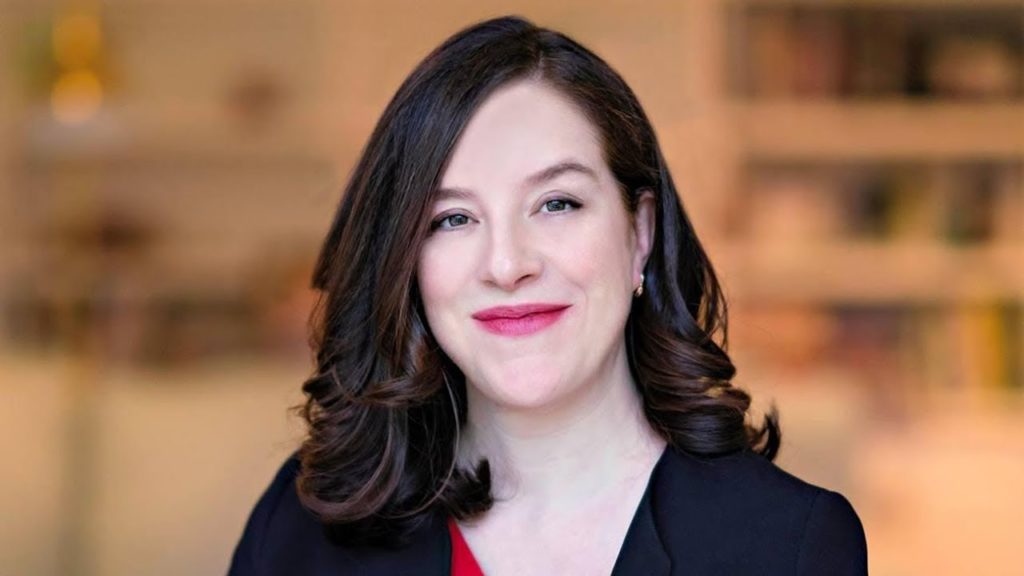Bloomberg’s Edney Is National Press Club’s 111th President
By • May 2, 2018 0 721

The 3,500-member National Press Club, founded in 1908 and now located just two blocks from the White House on 14th and F Streets, is one of the most active and well-known clubs in Washington, D.C. More than2,000 events are held annually, almost all of them broadcast by C-SPAN and NPR and reported in publications throughout the country.
Almost every president of the United States has been hosted there — formally and informally — as well as a good number of Cabinet secretaries, members of Congress, Supreme Court justices and other government notables and thousands of global leaders from business, music, film and sports.
“They come because the press is here,” the club proclaims.
It’s true. The reputation, influence, prestige and power of the National Press Club comes from its close relationship with full-time working members of the press — print and electronic media, staff and freelancers. The majority of the members (individuals who had to apply and be accepted) are active journalists or recently retired with at least 10 years of full-time experience. They head most of the Press Club’s standing committees, board of directors and, always, the presidency.
The remaining members are individuals known as “associates” (formerly “news sources”), who pay more to join and more for monthly dues. Many are lobbyists and communications professionals.
Andrea Edney is the club’s 111th president and the eighth woman to head the club, which only opened its membership to women in 1971. (The first woman president was Vivian Vahlberg of the Daily Oklahoman in 1982; President Ronald Reagan administered the National Press Club’s oath of office at her inauguration.)
Edney has been a reporter and news editor for Bloomberg News for more than 20 years, much of the time in the Czech Republic and Slovakia. She works easily in four languages and has studied several others during her 10-plus years abroad.
Almost immediately after she came to Washington in 2008, Edney joined the Press Club. “I felt so happy and comfortable here right from the start,” she said. “As a newcomer to D.C., I immediately met fellow journalists here and had a place where I could relax, but also discuss and learn about important news events and happenings.”
The club is open from 8 a.m. to 10 p.m., with complimentary coffee and continental breakfast. The menu and daily buffet in the restaurant, known as the Reliable Source, changes daily. Journalists and guests have access to a half-dozen TVs displaying the major news channels, as well as a working library and coop workspace cubicles for freelancers, guest journalists and full-time staff without offices.
Edney became involved in various committees of the club, including ones on professional development, newsmakers, speakers and especially Freedom of the Press initiatives. Now, as president, she can focus on the issues she thinks are most important.
Since the presidency is only for one year, the office is fairly free of administrative duties. Those are left to the professional staff of the for-profit club. Instead, “every Press Club president has the choice to make as much of an impact as they want to within their year,” Edney told The Georgetowner.
“Some of the choice depends on how much leeway our news organization gives us to do club activities alongside our full-time news positions,” she said, acknowledging that Bloomberg News is particularly generous about that. (Edney is the fifth president from Bloomberg News in the past 12 years and the sixth overall. No other media outlet has had so many.)
Given her many years working in journalism in Eastern Europe, a primary issue for Edney is freedom of the press. “We are going to keep fighting to protect press freedom in this country and throughout the world, because at the National Press Club that’s what we do,” Edney said at her inauguration on Feb. 10. The club has been particularly involved with the detention and pending deportation of Mexican journalist Emilio Gutiérrez Soto in El Paso, Texas, by the Department of Homeland Security’s Immigration and Customs Enforcement agency.
But also, as an editor and “somewhat of a perfectionist,” two other issues have become of great concern to Edney in this era of growing distrust in the media: press objectivity and fairness, and the training of investigative journalists to get to the facts in evolving stories.
“These days, journalists need all the tools that exist to report the news accurately and objectively,” she said.

